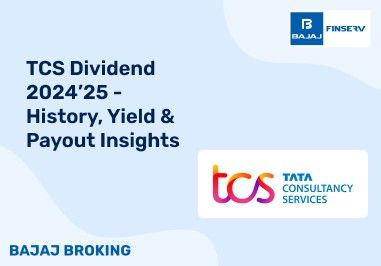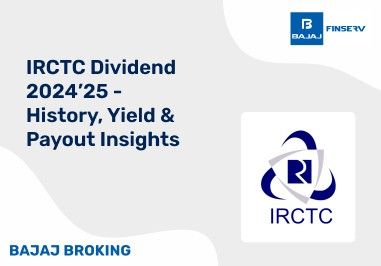Understanding unit investment trusts in India is essential for investors looking for structured investment options. A unit investment trust offers a fixed portfolio of securities, making it a unique alternative to mutual funds. The unit investment trust meaning lies in its passive management approach, where the portfolio remains unchanged until maturity. Investors can purchase units at the net asset value, ensuring transparency in investment value. To invest in unit investment trusts, individuals should open Demat account with a reliable broker for seamless transactions.
What is a Unit Investment Trust?
A Unit Investment Trust (UIT) is a type of investment vehicle where funds from multiple investors are pooled to create a portfolio of securities. Commonly composed of bonds or stocks, UITs have a distinct structure compared to mutual funds and exchange-traded funds (ETFs) due to their fixed portfolio. The unit investment trust meaning lies in its passive investment approach, where the securities are selected at the start and remain unchanged throughout the trust’s term. This static nature appeals to investors seeking a predetermined investment structure, offering income potential and possible capital gains.
What is a unit investment trust? Each unit of a UIT represents a proportionate interest in the trust’s portfolio and is purchased at the net asset value (NAV). Investing in a UIT provides an easy way to access a diversified portfolio without the need for continuous active management. With a fixed maturity date, UITs hold securities until maturity, offering stability and transparency in their investments. To invest in a UIT, investors may open Demat account with a provider like Bajaj Broking, where they can select the most suitable UIT based on their investment goals and preferences.
How Does Unit Investment Trusts (UITs) Work?
The operation of a Unit Investment Trust begins when the trust purchases a fixed portfolio of securities, which remains unchanged until the trust matures. This distinct approach means that unlike mutual funds, UITs do not actively trade assets to adjust for market changes, creating a stable investment vehicle. By pooling funds, UITs allow investors to buy into diversified collections of securities at a single entry point. When investing in UITs, investors purchase units, each representing a fractional interest in the trust’s assets, calculated based on the net asset value (NAV) at purchase.
Understanding what is a unit investment trust is important. UITs operate under a trustee’s oversight, which ensures regulatory compliance and adherence to the investment objectives stated in the trust deed. Trustees work with asset managers who monitor the portfolio, although the portfolio composition itself remains fixed. Investors benefit from the trust’s income or gains without needing to participate in day-to-day management. To participate in a UIT, investors can open Demat account with Bajaj Broking, allowing them to explore options suited to their needs. By aligning with a specific objective, such as income generation or tax efficiency, unit investment trust meaning UITs offer targeted solutions within a passive structure.
Types of Unit Investment Trusts
Unit Investment Trusts come in various types to suit diverse investor objectives. If you want to understand what is unit investment trust and unit investment trust meaning, then here are some key types to help you comprehend better:
Equity
Equity UITs invest primarily in stocks and seek long-term growth, making them suitable for investors looking to capitalise on stock market gains over time.
Debt
Debt UITs focus on fixed-income securities like government bonds and corporate debt, providing stable income to investors interested in lower-risk options.
Balanced
Balanced UITs combine equities and debt, offering a blend of capital growth and income, ideal for investors who desire a balanced risk profile.
Sector-Specific UITs
Sector-specific UITs concentrate on specific industries, such as technology or healthcare, catering to investors wanting targeted exposure within a sector.
Index
Index UITs mirror a specific market index, like the Nifty 50 and offer broad market exposure, making them suitable for investors seeking to diversify.
Features of Unit Investment Trusts
Unit Investment Trusts come with several distinctive features:
Fixed Term: UITs typically have a predetermined maturity, providing investors with a clear investment timeline. This fixed duration allows investors to plan their financial goals more effectively, knowing when they can expect their capital back.
Passive Management: UIT portfolios are set at inception and not actively managed, allowing for transparent tracking of assets. This approach reduces management complexities and costs, making it easier for investors to understand their investments without needing to monitor frequent changes.
Net Asset Value: Units are purchased at the NAV, providing a straightforward investment value. This transparency helps investors to easily determine the worth of their investment and understand how it may fluctuate over time.
Diversification: UITs allow access to a broad array of securities within one investment, spreading risk across multiple assets. This diversification is crucial in mitigating risks associated with individual securities, providing a more stable investment experience for investors.
Income Generation: UITs often generate income through dividends or interest from their fixed portfolios, benefiting income-seeking investors. The structured nature of UITs means that investors can anticipate potential income streams, making them appealing to those looking to supplement their earnings.
Advantages of Unit Investment Trusts
UITs provide investors with several significant benefits that can enhance their overall investment strategy. One major advantage is diversification; since UITs pool investments across different securities, they offer exposure to a broad selection of assets, reducing risks associated with single investments. This is especially valuable in volatile markets, where diversification can help mitigate potential losses.
Another advantage is passive management, which translates to lower fees due to minimal trading within the trust. This cost efficiency is a considerable draw for many investors, especially when compared to mutual funds, which often incur higher management fees from active trading. The structure of UITs ensures transparency—investors have full visibility of their holdings and can anticipate returns based on the portfolio’s fixed nature.
Additionally, UITs are often tax-efficient because of their low turnover, making them appealing for long-term investment strategies. The unit investment trust meaning also encompasses their ability to generate income through dividends or interest payments. Investors can easily access unit investment trusts by opening a Demat account with providers like Bajaj Broking, where they can buy units at the net asset value.
Disadvantages of Unit Investment Trusts
While UITs have notable benefits, they also come with certain drawbacks that potential investors should consider. A significant limitation is the lack of flexibility; since UITs have a fixed portfolio, investors have no control over the assets once the trust is established. This rigidity can lead to holding underperforming securities until maturity, which may not align with an investor’s changing financial goals.
Another disadvantage is sector concentration; UITs may focus on specific industries, posing higher risks if that sector experiences volatility. For instance, if a UIT heavily invests in technology, any downturn in that sector could substantially impact returns.
In addition, UITs may not offer the same level of diversification as actively managed funds. While they do provide some diversification through pooled investments, the fixed nature of the portfolio can lead to limitations in risk mitigation. Furthermore, UITs may lack liquidity due to their fixed-term structure, making it challenging for investors to access their funds before maturity. Therefore, potential investors should carefully weigh these limitations against their investment goals when considering UITs as part of their overall portfolio strategy.
Unit Investment Trusts (UITs) vs Mutual Funds
When evaluating different investment vehicles, it's important to understand the distinctions between Unit Investment Trusts (UITs) and Mutual Funds. Each option has its own unique features and benefits that cater to varying investor needs. Here's a table summarising the key differences:
Criteria
| Unit Investment Trusts (UITs)
| Mutual Funds
|
Management Style
| Fixed portfolio with less active management, providing a more stable investment.
| Actively managed with frequently adjusted portfolios to optimise returns.
|
Investment Objective
| Targeted investment strategy with a fixed term, offering a structured approach.
| Diverse objectives, including growth, income and balanced options to suit various investor goals.
|
Liquidity
| Generally lower liquidity due to a fixed-term structure. Units can be redeemed only at maturity or pre-specified intervals.
| Higher liquidity, as units can be bought or sold daily based on market demand.
|
Risk Factors
| Varies with underlying assets, generally lower due to a fixed portfolio.
| Risks depend on the fund type and can be higher due to active management and frequent adjustments.
|
Cost Structure
| Typically incurs lower fees than mutual funds, as there is minimal trading.
| Management and operational fees can be higher due to active management.
|
Investment Tenure
| Fixed tenure, often short to medium term. Ideal for those seeking a defined investment period.
| Flexible with no fixed maturity date, allowing investors to adjust holding periods as per market conditions.
|
When considering investments like Unit Investment Trusts (UITs), understanding the unit investment trust meaning is essential. For those looking to diversify portfolios, both options provide unique benefits. UITs are bought at net asset value, offering a simple entry point. To start investing, one can open Demat account with Bajaj Broking.














